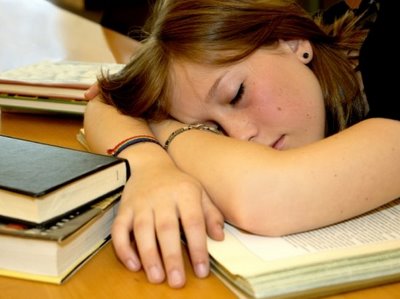
By: Megan Turner
High school students, college undergraduates, and anyone else who has transitioned from a student to the working world have experienced the effects of sleep debt. Perhaps due to an extra busy schedule, one had to stay up all night to finish a very important presentation or to study for a final which will determine his ability to graduate. We do this without thinking about the effects of fatigue. We believe a cup of coffee can correct our weariness and after some consumption of caffeine we can start anew. The reality is that only extra sleep is able to remedy our sleep debt.
This means that everyone needs a certain amount of sleep each night to maintain optimal waking function throughout the day. A popular approximation of sleep need is eight hours of sleep each night. However, this does not apply to everyone. Sleep need varies from person to person. One’s sleep need can only be scientifically determined by measurements carried out in a sleep laboratory. Because most of us don’t have the time or desire to spend a night being tested, the best way to determine one’s sleep need is to assess oneself. When do you begin to feel tired? Are you drifting to sleep during daylight hours? If so, increase the amount of sleep you receive.
Sleep debt is the accumulated amount of sleep less the daily amount of sleep needed. If one has a sleep need of eight hours and only gets six hours of sleep each night of the week, they will accumulate a sleep debt of fourteen hours by the end of the week. The larger the sleep debt someone has, the stronger the tendency is to fall asleep during the day. One appropriate analogy relates sleep debt to a credit card balance. The debt doesn’t disappear randomly; it can only be reduced by extra sleep.
When one has a large sleep debt, drowsiness emerges. DROWSINESS IS RED ALERT. We need to realize that drowsiness is the last sign of sleep debt (rather than the popular opinion that it is the first sign) and immediate action should be taken when one feels drowsy. Whether driving on the road or hard at work, when one feels drowsy, sleep is necessary. Find an appropriate place to take a short nap to lessen your sleep debt.
As humans in today’s society, we often feel exempt from the warnings preached to us about sleep debt. We have technology to keep us up working, making further progress and being productive all night long. We feel the effects of fatigue but we believe we can still function properly. We justify that we don’t need recovery sleep and that we are able to maintain optimal attention no matter how much sleep we got the night before. Many accidents occur when a person is sleep deprived and still trying to do a job. Few make an effort to add crucial restorative sleep to their day. They may believe other things are more important and therefore, leave sleep as a lower priority.
To better your sleep hygiene, determine your own sleep need and do your very best to get that amount of sleep each night. Try to go to bed around the same time each night and wake up around the same time each morning. There are many benefits to getting your optimal amount of sleep each night including high energy, optimism, and peak performance. To help others who are not following a good sleep habit, educate them to the dangers of sleep debt and drowsiness.











